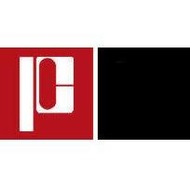
(View Complete Item Description)
The purpose of this course is to systematically examine the elements and factors which result in an effective speech. Tying these together are the themes of information and ethics, emphasized in each resource because they are becoming increasingly important to all communicators. Upon successful completion of this course, students will be able to: resolve ethical issues involving speech preparation and presentation; recommend techniques for resolving issues, which may interfere with active listening; identify the most effective speech topics, qualities, content, and delivery techniques based on the specific characteristics of an audience; evaluate the effectiveness of speeches for different types of audiences; use online and library-based research to find and critique the credibility of sources of information; cite sources of information appropriately, accurately, and clearly in both spoken and written contexts; choose the most effective pattern of organization for presenting different types of information to a listening audience; evaluate the effectiveness of supporting details or evidence based on the main ideas or arguments they are used to support; choose the most appropriate pattern for organizing a persuasive speech, based on the relationship between arguments and evidence or the relationship between the topic and the audience; identify whether the functions of an introduction or conclusion have been fulfilled and will be effective when presented to a specific type of audience; create keyword and sentence outlines for informative and persuasive speeches; revise a passage written for readers so that it can be delivered effectively and engagingly to listeners; identify and use techniques to improve the fluidity and clarity of verbal delivery; recognize non-verbal techniques that communicate the speakerĺÎĺ_ĺĚĺ_s confidence and credibility in a sample speech; demonstrate comprehensive knowledge of effective, ethical public speaking by accurately and thoroughly assessing the qualities of entire informative, persuasive, and special occasion speeches. This free course may be completed online at any time. (Communication 101)
Material Type:
Assessment,
Full Course,
Homework/Assignment,
Lecture,
Reading,
Syllabus,
Textbook




















